Clarissa Rios Rojas | CSER
Research Associate
What advice do you have for people coping with this crisis?
To stay informed by following the social media of the World Health Organization and their own governments. In addition, they can also join different initiatives such as Skype a Scientist, the bot to answer questions about COVID19 from the young scientists in the USA, or follow blogs in your own language that belong to trustful sources (for example the bulletin made by the scientists at Ekpa’palek in Latin America).
What do we need to do to be prepared for future pandemics?
As citizens, we need to observe the decisions that our political leaders are taking and evaluate them step by step so in the future we can have an informed vote. We need leaders that work not only on mitigating but on preventing future pandemics.
As scientists, we need to publish our results it in open sources so collaboration and sharing of information can happen faster and more efficiently.
As advisors of policymakers, we need to learn how to communicate uncertainty and interact with experts from other disciplines.
As politicians, we need to listen to scientists and to experts in economics, law and even citizens if we want to make better decisions.
What can we learn from COVID-19 about other catastrophic risks like nuclear war, AI, etc?
That we definitely need more research in the science of global risks.
Those governments should put in place cautionary monitoring of different types of risks and develop a system that can manage surprises in a resilient, flexible, and immediate way.
Risk management should be always part of the process of monitoring these risks and should include close supervising and protocols for strict containment of potential hazard.
Governments or international entities should create a plan of action for what to do in case of catastrophic risks, this can be done by leveraging on the research performed at institutions such as CSER, FHI, CFI, FHI, etc.
What can we learn from COVID-19 about how to make humanity more resilient in general?
Behavioural studies are very important and especially behavioural economics since it seems that the economic factor is crucial when taking government decision in relation to pandemics.
Is there anything else you’d like to add?
I am a Research Associate at the Centre for the Study of Existential Risk and I am happy to answer any further questions and I am interested in building bridges of future collaborations. I am particularly interested in how understanding global risks can make our governments take better decisions.



